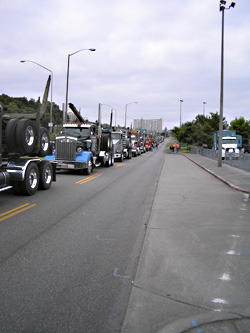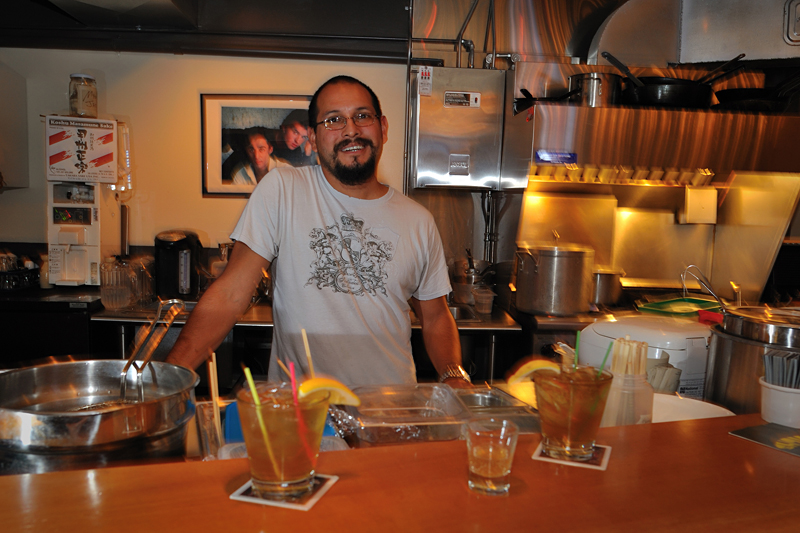Larry Doll was catching some Z’s on a trip to Portland when he woke up to see a wall of 18-wheelers cruising down I-5. “It just went on and on and on,” he says of the convoy.
Turns out, Doll and his traveling companions had come upon the World’s Largest Truck Convoy, an annual event that occurred last month in conjunction with the Law Enforcement Torch Run fund-raiser for the Special Olympics. Doll’s friend Matt Kanaly, who was driving when they encountered the endless line of long-hauler semis, says they waited for about 20 minutes just north of the Tacoma Dome, where the convoy began, while the trucks merged onto the freeway. Several miles later, the car caught up.
“You couldn’t see the beginning,” Kanaly claims, adding that he didn’t get past the law-enforcement-escorted convoy until it turned off at Exit 57 near Chehalis. At times, that left only the right lane for other vehicles to travel in. “It was pretty frightening,” Kanaly says. “What would have happened if there was an accident?” (The convoy was completed safely.)
Special Olympics Washington spokesperson Jill Ward says about 160 trucks participated in the event, which stretched over 77 miles between Tacoma and Chehalis (the convoy was born in Florida in 2001 before going national). Ward says the convoy raised about $50,000 for her organization, money that will be used to support approximately 50 Special Olympics events throughout the state, as well as the annual Winter and Summer Games.
In addition to his safety concerns, Kanaly, who works with special needs students at Nathan Hale High School, voiced uneasiness about the environmental impact of such a procession. Most of the 160 trucks that participated in Washington carried no cargo, Ward says. According to the University of Minnesota’s Hubert H. Humphrey Institute of Public Affairs, a semi gets about 6.5 to 7 miles per gallon. Using the more generous estimate, the convoy went through about 1,760 gallons of fuel. The Wallingford Chevron sells diesel at $3.49 per gallon, bringing the cost of running the convoy to around $6,100.
Keith Haines, chair of the Torch Run Council, organizer of the torch run, says those costs were covered by the participating trucking companies. And according to Haines, this is the first time concerns like Kanaly’s were raised. “We’re relatively new with this particular fund-raiser,” he says. “[The environmental impact of the convoy] is something to consider for the future.”







